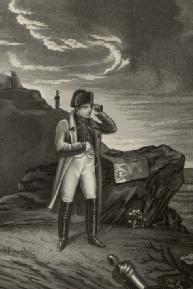The Last Stand: Napoleon's 100 Days
|
|
On March 20 1815, Napoleon marched into Paris with his supporters, having escaped from exile in Elba a month earlier. Louis XVIII had fled the capital in terror at the re-emergence of the military hero and former emperor. Napoleon’s ‘Hundred Days’ would be brought to an end only by the battle of Waterloo in June, which forced his abdication and subsequently ensured the restoration of Louis to the French throne in July. The Hundred Days is the final scene of Napoleon’s – and France’s - domination of the European stage, initiated by the French Revolution. 2015 brought a wide range of events in Britain commemorating Waterloo but the focus on the concluding battle tends to obscure the details of this final phase of France’s revolutionary transformation and its significance within Europe and the wider world. To tell some of that larger story, we mounted a virtual exhibition that unfolded step by step, in parallel with the Hundred Days from March to July in 2015. The complete exhibition is now available at <https://100days.org.uk/>. Alongside the exhibition we ran a programme of public activities and academic events focusing on the impact of the events on the publics in Europe and across the globe. 'The Last Stand: Napoleon's 100 Days' is the result of a collaboration between Professor Mark Philp (History), the European History Research Centre, and a team working on an AHRC-funded project on French Theatre of the Napoleonic Era (Principal Investigator Dr Katherine Astbury; postdoctoral research fellow Dr Katherine Hambridge; and PhD students Devon Cox and Clare Siviter). |
VIRTUAL EXHIBITION
The Last StandLink opens in a new window: Napoleon's 100 Days in 100 Objects
- Launched on 23 February 2015 with a range of material filling in the background to Napoleon’s exile in Elba, the website released daily an new object to shed light on the dramatic events of the 100 Days, from his escape to his defeat at Waterloo, together with weekly summaries outlining the period more broadly. The objects in the exhibition were nominated and introduced by a team of international scholars with expertise and interests in this historical period, and sourced from museums, archives and private collections across the world. The web-site now forms an accessible and informative stand-alone exhibition on the 100 Days.
PAST CONFERENCES
- On 1 July 2014, the University of Warwick hosted a one-day conference on popular reactions in Europe and beyond to Napoleon's 100 Days. Papers identified a range of objects that might be suitable for the virtual exhibition to be launched in 2015, and discussed their significance as part of a story about how people reacted to and understood the return of Napoleon from Elba, his restoration as ruler of France and his subsequent overthrow. See conference timetable here.
- A conference on 'Popular Reactions and State Responses to the 100 Days' took place at the University of Warwick on 7 July 2015. The 100 Days are usually discussed largely in military terms: the purpose of this conference was to turn attention to popular responses to this dramatic period, and to consider its implications for the self-understanding of states and peoples in the post-revolutionary European and world order. For more details on the conference, see the conference programme.

